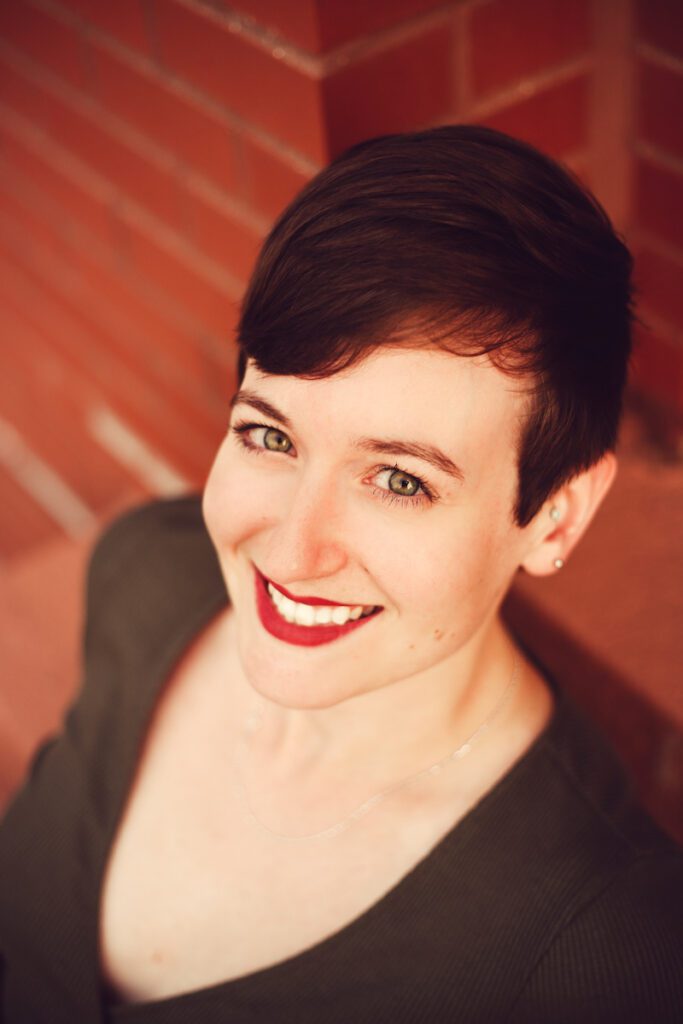small talk
his face a drain she can pour
her whole life down, on the margin as the party swirls
interlocking circles of family, acquaintances,
strangers making small talk under
boy-blue balloons, using paper plates
to quilt together a handful meal out of
single-finger foods, clots of
children in every corner, under every table,
lips red with punch like they dipped
lipsticks from the pile of purses on the guest beds,
all this eddying around the whirlpool of his face,
eyes blue-gray like the brackish water
on other side of the tidebreak where she lost it,
her first and only time, all she could focus on
the rough jutting of the rock wall between
her shoulder blades, grating as the red
head he was pushing into her, brow furrowed,
hands on her shoulders as if bracing her for
the bad news that would come down months later
in the form of nausea, of breasts
more tender than old peaches, of a visit to
an aunt’s house in the country, coming back empty
bra padded with cold romaine
that spills out like a story to a kind young man
who simply asked, what was it,
how does she know the birthday boy?
Growing up Golem
The golem’s parents are at
their wit’s end. They don’t know
what to do with this creature
that woke up one day a stranger.
How carefully they once gathered
the clay, formed its limbs,
inscribed the sacred word
to place into its waiting mouth!
Now the golem stays out late,
dresses provocatively. It comes home
with smudged eyeliner,
smelling of mango vape smoke.
The golem’s parents are attending
workshops, reading “From emet to met,
Talking So Your Golem will Listen,
Listening to What Your Golem Can’t Say.”
Still, the golem’s failing classes,
ignoring the teachers, breaking up
with a new boy every week
and cyberbullying all its exes.
The suspension slips pile up
like maple leaves in October.
The golem’s parents enlist a therapist
and a tutor, a rabbi and a cool college student
from the Troubled Youth Mentor Center.
The golem flips them all the bird
and runs away for a whole weekend.
State troopers pull up with
the golem sniffling in the back seat.
It will not say where it’s been.
While the golem curls up,
exhausted, under a patchwork quilt
of shirts it has outgrown, its parents
stand in the doorway, at the border of this
country to which they have no passports,
and have long forgotten the language.
FRANCES KLEIN (she/her) is a poet and teacher writing at the intersection of disability and gender. She is the 2022 winner of the Robert Golden Poetry Prize, and the author of the chapbooks New and Permanent (Blanket Sea, 2022) and The Best Secret (Bottlecap Press, 2022). Klein currently serves as assistant editor of Southern Humanities Review.
